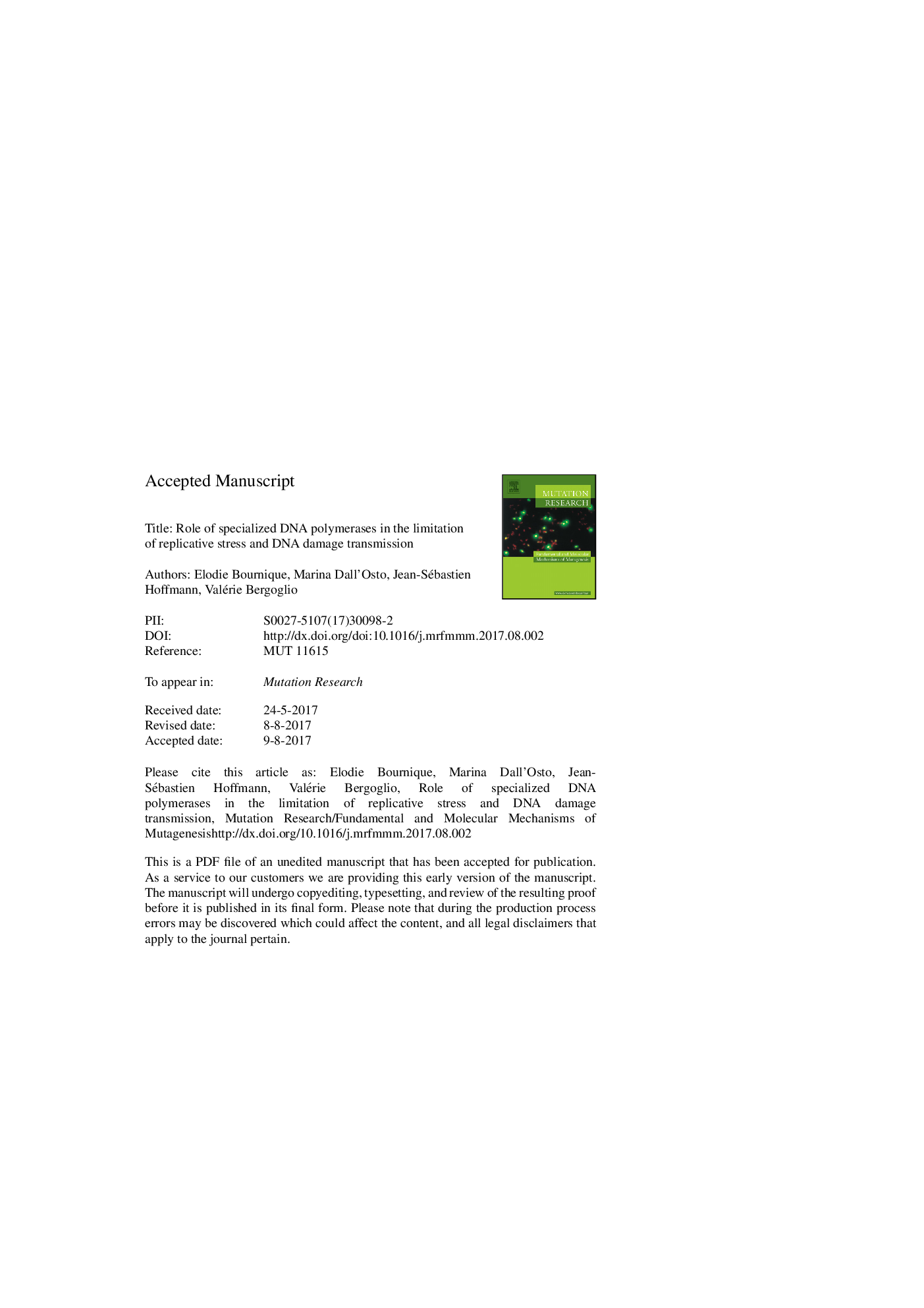| Article ID | Journal | Published Year | Pages | File Type |
|---|---|---|---|---|
| 8455641 | Mutation Research/Fundamental and Molecular Mechanisms of Mutagenesis | 2018 | 31 Pages |
Abstract
Replication stress is a strong and early driving force for genomic instability and tumor development. Beside replicative DNA polymerases, an emerging group of specialized DNA polymerases is involved in the technical assistance of the replication machinery in order to prevent replicative stress and its deleterious consequences. During S-phase, altered progression of the replication fork by endogenous or exogenous impediments induces replicative stress, causing cells to reach mitosis with genomic regions not fully duplicated. Recently, specific mechanisms to resolve replication intermediates during mitosis with the aim of limiting DNA damage transmission to daughter cells have been identified. In this review, we detail the two major actions of specialized DNA polymerases that limit DNA damage transmission: the prevention of replicative stress by non-B DNA replication and the recovery of stalled replication forks.
Related Topics
Life Sciences
Biochemistry, Genetics and Molecular Biology
Cancer Research
Authors
Elodie Bournique, Marina Dall'Osto, Jean-Sébastien Hoffmann, Valérie Bergoglio,
